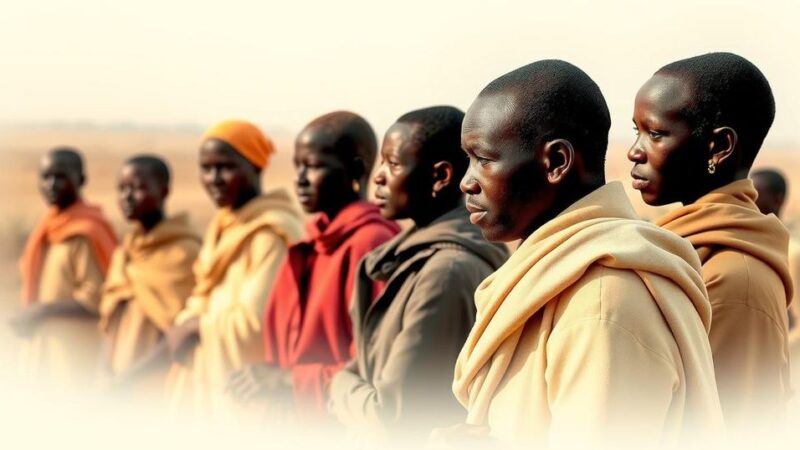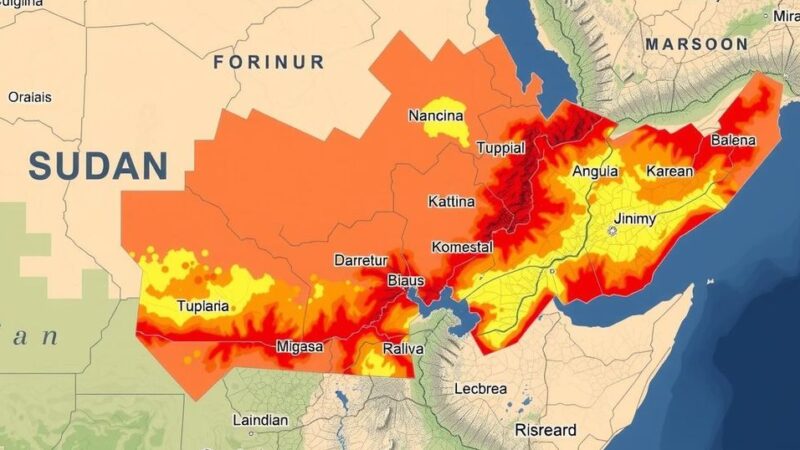Tropical cyclone Chido has severely impacted Mozambique, causing 94 fatalities and affecting 620,000 individuals. The cyclone’s wind speeds reached 260 km/h, and experts link its strength to climate change. The local government urges community solidarity for recovery efforts, while challenges are compounded by concurrent health crises and environmental disasters.
The destructive tropical cyclone Chido has been impacting Mozambique, claiming the lives of at least 94 individuals over the course of a week. Reports indicate that approximately 620,000 people have been affected, particularly in the Cabo Delgado province, where the cyclone’s winds have reached speeds of up to 260 km/h and daily rainfall has surpassed 250 mm. The National Emergency Management Agency of Mozambique has been actively monitoring the situation and coordinating responses to assist the affected populations. Experts attribute the increasing severity of cyclones like Chido to climate change, highlighting the urgent need for global action to address this phenomenon. Citizens are being urged to show solidarity and support for those affected, as recovery efforts are expected to be extensive and challenging.
In addition to focusing on cyclone Chido, recent reports highlight a significant health crisis in Congo, where a flu-like illness has resulted in multiple fatalities. Meanwhile, there are ongoing concerns regarding environmental damage following an oil tanker incident in the Kerch Strait, with allegations surrounding the concealment of its effects by Russian authorities.
Tropical cyclones are severe weather systems that develop over warm ocean waters and can lead to extensive loss of life and property. Cyclone Chido is among the most devastating cyclones in recent years, particularly impacting Mozambique. Cabo Delgado is one of the provinces that has suffered greatly. As in many regions, climate change is believed to exacerbate natural disasters’ frequency and intensity, highlighting the growing concerns regarding global warming’s impact on weather patterns. In times of natural disasters, local governments and communities often face the daunting task of recovery while simultaneously addressing other concurrent crises, such as health emergencies or environmental hazards.
In summary, tropical cyclone Chido has tragically claimed the lives of 94 people in Mozambique and severely affected 620,000 others, particularly in the Cabo Delgado province. The combined influence of extreme weather events and climate change continue to pose significant challenges for the region, necessitating concerted efforts for recovery and support. The ongoing health crisis in Congo, along with environmental issues from other disasters, underscores the urgent need for a holistic approach to disaster management and mitigation.
Original Source: news.novyny.live







